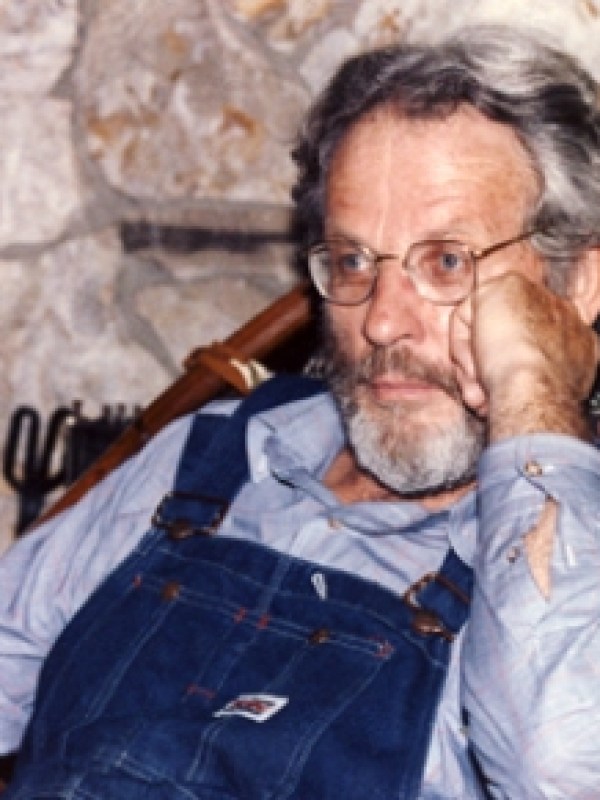Edward Loomis
August 8, 1924 – May 13, 2010
Edward Loomis, a former professor of English at the University of California at Santa Barbara, died on May 13th after a lengthy illness. Well known to the campus community and in Santa Barbara, Ed left a lasting influence of intelligence and goodwill on the many hundreds of people he knew and taught in the decades of his residence in the area.
One of three sons, Ed grew up in Cleveland, Ohio, where his father was an educator and school administrator. It was through his father that Ed had a lifelong interest in the philosophy and educational theories of John Dewey. In the early 1940s Ed attended the unusual Deep Springs College in the Owens Valley, both academically demanding and a working cattle ranch managed by the students. His love and continued interest in the American west grew out of this and found a place in both his writing and teaching career. Ed’s novel, “The Hunter Deep in Summer,” is especially influenced by the area around Deep Springs.
Drafted into the United States Army in 1943, Ed was a rifleman in the 104th Infantry Division and was wounded in Holland in 1944. After a period of convalescence, he returned to his division and was among the first American soldiers to meet Soviet troops in eastern Germany at the close of World War II in 1945. Ed’s experiences during the war formed the background for his novels, “End of War,” “The Charcoal Horse” and the short stories “Vedettes”.
Returning to Cleveland, Ed married his high school girlfriend, Ruth Fetzer and attended college on the GI Bill of Rights. Deciding on an academic career, Ed pursued his Ph.D. at Stanford University, where he studied under Yvor Winters. Teaching first in Arizona, he came to UCSB in 1959 and was part of the prestigious English Department that included scholars Hugh Kenner and Marvin Mudrick. Ed was especially close, over the years, to fellow teachers Edgar Bowers and Alan Stephens, both well known poets.
During his period as Chairman of the English Department, Ed was responsible for bringing the poet and critic, Kenneth Rexroth to Santa Barbara in 1968. Rexroth’s brief teaching experience was a delight to Ed, though he often said it was received with “rage and shame” by the English Department. During this time Ed also assisted in helping to found the College of Creative Studies at UCSB.
Increasingly interested in recording from the 1960s, Ed’s audio fascination found a way into the classroom as he and students read and recorded poetry and used this as an essential part of understanding the poem. Over the years Ed wrote alone or with collaborator Frank Goad, various art/ performance audio works including “Zendada,” “Utopia,” and “Advice to the Lovelorn.” Ed’s last big audio project was with his friend, Art Kay, and involved reading and recording a very large selection of favorite American and English poems.
After the death of his wife, Ed married again in the 1970s and continued his teaching until retirement in 1987. A whole range of new interests emerged or were deepened in the following years. Ed began to take photography seriously and studied Spanish. He was soon reading extensively in Spanish poetry and experimenting with translations of Antonio Machado and others. Several trips to Spain were a great pleasure for Ed.
Always inquisitive, always captivated with the things and ideas of the world, Ed’s charm and supportiveness of others earned him many devoted friends. Former students include novelist Lawrence Thornton and artists Frank Goad, Hank Pitcher and Gerard Haggerty.
Ed was the author of over a dozen novels, volumes of poetry and translation. He is survived by his brother Richard, his daughters Jessica, Andrea and Abby, his grandchildren, and wife, Mary O’Connor.

